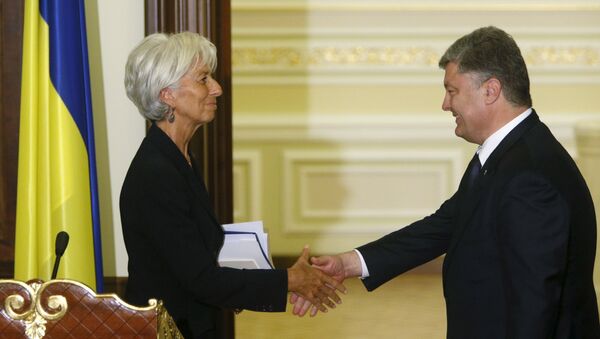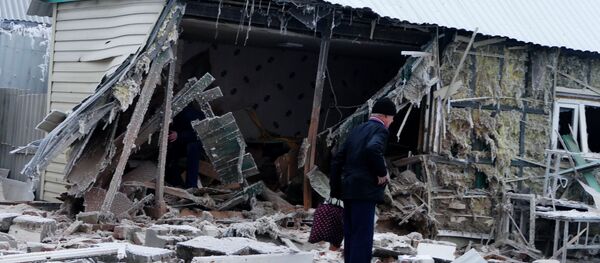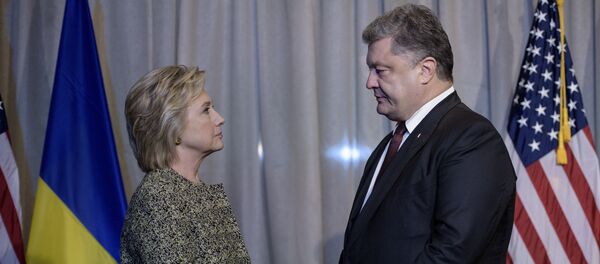According to a copy of the Austrian banking group's report on Ukraine, excerpts of which were obtained by the Russian news agency RIA Novosti, "any significant changes in relations between Russia and the US will have serious and difficult consequences for Ukraine's foreign and domestic policy, as well as the country's economy."
This, the report stresses, is due to Ukraine's heavy "dependence on international and bilateral financial assistance from Western countries, and to the key role played by Western institutions in reforming the country's government institutions."
Also worrying to Kiev, according to the report, is the kind of commentary Trump made on the campaign trail, and after being elected, vis-à-vis Ukraine, and the US's relationship with Russia, and the background of some of his appointments.
Economically speaking, the report says, the worst case scenario for Kiev would be a rupture in the current IMF lending program to Ukraine, which is presently expected to last until 2018. Pointing out that the international financial institution has already had problems with Kiev in the past, with the latter failing to fulfill some of its basic obligations as a condition for further borrowing, Raiffeisen Research noted that a "(geo) political component" had been involved in the IMF Board of Governors' agreement to continue programs to support Ukraine.
Under Trump, researchers suggest, the IMF's lending policy to Ukraine may change, given the US's important role in the institution. "Ukrainian authorities may find it more difficult to ensure the continuation of the IMF program, if key conditions, such as the fight against corruption, and progress in structural reforms, are not met." In that case, all that would be left for Kiev to do would be "to intensify their efforts" to meet at least the minimum conditions for the continuation of the existing aid program.
In addition to IMF assistance, the US also provides aid via guaranteed US government bonds. The Trump administration, Raiffeisen Research says, may be more reluctant to provide this form of bilateral assistance to Kiev than the outgoing administration.
This, researchers say, would not result an immediate crisis as far as Ukraine's financial stability is concerned, although a reduction in US assistance would play an important 'psychological impact' on the country's politicians. Thereafter, Ukraine would be left in the hands of the European Union, where a certain level of "Ukraine fatigue" has also set in. The report does not see "a strong desire at the EU level to provide bold amounts of additional support for Ukraine," either.
"Nevertheless, a fierce debate on foreign policy has already started in Ukraine due to Trump's election, and may lead to an adjustment in Ukraine's political positions in 2017," the report concludes.






